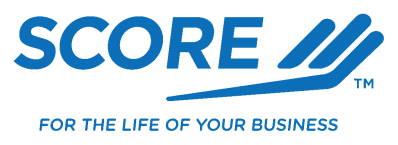3 Ways to Incorporate a Firm
Decide between sole ownership or taking on partners
When you are starting a new business, one of the first questions you will have to answer is what form of legal organization is best for you.
The answer depends on your goals, personal situation and tax implications.
There are three basic ways of organizing a business.
Sole proprietorship
One of the most popular in today’s environment with 15.3 million small office/home office workers is the sole proprietorship. A sole proprietorship has several advantages: it is easy to form; you control the firm; make all of the decisions; and receive all the profits.
With this form of organization you have great flexibility in making decisions, compared to corporations in which a board of directors has operational input. In addition, there is relative freedom from government control and reporting.
The greatest disadvantage with a sole proprietorship is that you have no protection for you or your family’s personal assets. Should there be financial problems or a lawsuit your own assets are at risk. You can obtain insurance to minimize the risk and cover liability up to a certain dollar amount; however, you are assuming greater personal liability.
Partnership
The second way of organizing a business is through a partnership. A partnership is an association of two or more people who operate a business as co-owners. Be sure to draft a legally binding partnership agreement.
Unless, there is a written partnership agreement, each partner holds an identical share in the business, regardless of the time or financial resources contributed to the business. A partnership is easy to form, with minimal paperwork and legal consultation.
As with the sole proprietorship, there is relative freedom from government control and paperwork. There is still flexibility and freedom of action, but less so because all the partners have a say in decisions.
There are some drawbacks to partnerships. First, the firm is bound by the actions of each partner as an agent. The equity of each single partner is not liquid and at greater risk. It takes more time and effort to sell a partnership interest in a business to an outsider. Second, in the event of the death of a partner, the firm must be liquidated unless legal safeguards have been put in place to allow the business to continue with the remaining partners.
Even with this arrangement, the family of the deceased partner is entitled to the assets of the partner; you must then buy out those shares in the business. It is best to have such issues pre-determined with a written policy to protect the business.
Corporation
The third way of organizing a business is in the form of a corporation. A general or "C" corporation is organized to sell shares of company stock to its owners. The main advantage of incorporation is the limited financial liability of the owner. Personal assets cannot be attached and ownership can be easily transferred through the sale of stock shares. The corporation is a legal entity and will continue to exist until its legal dissolution, even if one of the principals in the business should die.
The disadvantages of a C corporation center on government control and report. Corporate earnings are taxable, before the distribution of earnings to owners. Following that distribution the owners are taxed on their earnings. You may opt for the sub-chapter (S) Corporation.
This incorporation provides the limited liability of the corporation and simplifies taxation. Earnings are taxed at the personal level; a separate corporate earnings tax is not levied against sub-chapter (S) Corporation. Another option is the LLC, Limited Liability Company, which offers the benefit of limited liability without being as complex as a corporation.
Before you decide on your form of business organization, talk with your tax adviser and attorney. This decision has long-term implications as to how your business will operate and how it will be taxed. It is important to obtain legal counsel, before you obtain your business license.


